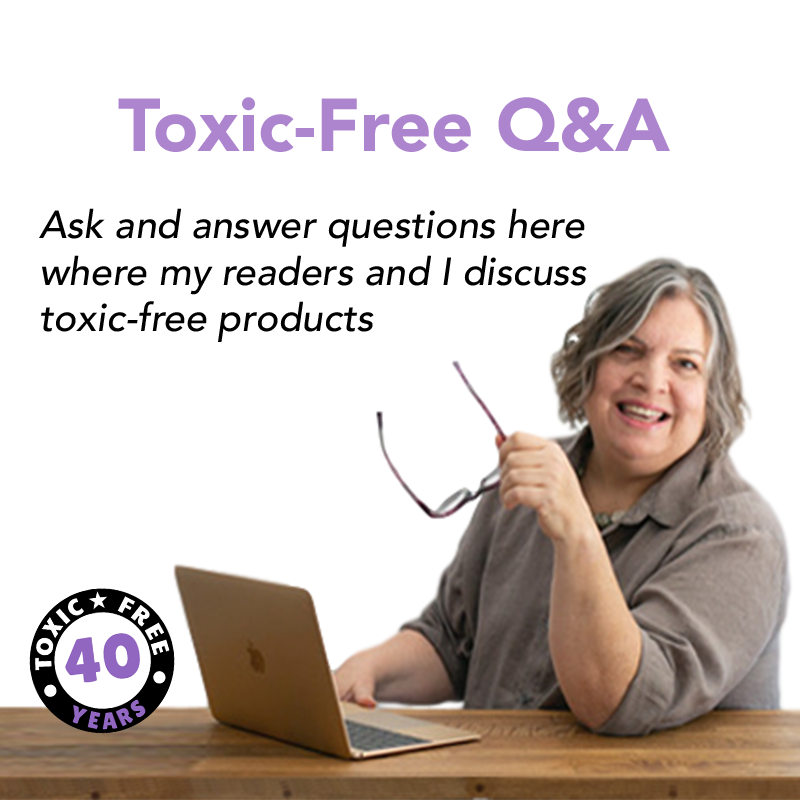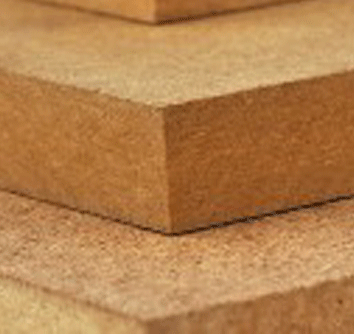
Submitted questions will be posted with my response by the following Tuesday or before.
Submitted comments will be moderated and approved within 24 hours.
Toxic chemical emissions in apartment
Question from Jay
Dear Debra
I’ve been a fan of your radio show ever since I experienced the following problem. And I was wondering what advise you could give with regards to a nightmare situation in my apartment.
Nine months ago I bought a PowerTec LeverGym (made in www.deathbychina.com of course….) that started “off gassing” something nasty from the painted metal, soon after it was erected. It damaged my lungs to the point that I had to see a respiratory consultant.
I vacated the property for eight months whilst trying to wrestle a refund and collection from the company, to no avail so far. Because this is going on longer than expected I took it apart last month, sealed the segments in polyurethane and put it in a friend’s well aired garage at the bottom of his garden. But the biggest nightmare is that whatever that chemical is, it seems to have permeated everthing, and the toxic gas is still present even a month after its been removed, even after scrubbing and washing all the floors, walls and ceilings down!
It burns my lungs and throat and gives me a headache when I go in there even now. I’m thinking it’ll never disappear, and I can’t just move home that easily. Do you have any idea what that damn chemical weapon is (I’ve searched everywhere on the internet to no avail) and what I could possibly do to remove it completely?
Regards,
Jay
Debra’s Answer
I don’t know what the chemical is, but the standard thing to do is bake it out.
debralynndadd.com/q-a/instructions-to-bake-out-toxic-fumes
If this doesn’t work, painting over it might work.
Readers take heed. Don’t bring things that outgass into your home.
Least Toxic Computer Printer Ink
Update February, 2020: How to Find a Less Toxic Computer
Greenlink Adhesives and Caulks…No Longer?
Question from janice
Hi……thanks so much for all the work you do in posting all this great information and resources for those of us with sensitivities to toxic products and vocs. Clicking on the link for adhesives and chaulk – it appears that Greenlink is no longer available? Any other suggestions???
Thanks
Debra’s Answer
Yes, they are gone. Thanks for asking so I can remove them from Debra’s List. Their website is still up, which is why they didn’t appear as a broken link.
The site goes to Chem-Link, the manufacturer of GreenLink. These products, though similarly less toxic, are not being sold to the consumer market, only commercial.
Readers, any suggestions for replacements?
Bath/Shower Surround
Question from Janice
Thanks Debra for all your wonderful information and sharing this knowledge to all. We need to redo our shower/tub walls and I have no idea which is the least toxic, NO VOC’s options – tiles or pre manufactured surround. What would you recommend or would you use, to not have any awful vocs? Thanks.
Debra’s Answer
I would absolutely use tile over an acrylic surround, which is pure plastic.
You can use stone tiles as well as porcelain, and also Swanstone
Bath accessories
Question from Stacey
Hello Debra,
I think I have read in your books to choose natural fiber towels, but organic is not necessary. Is this true? I did find some clearance organic towels that are whitened with hydrogen peroxide, which I assume is safe and no problem. Are dyed (not organic) towels fine?
Also, what about the shower curtain? I found an organic hemp curtain, but also a much cheaper cotton curtain. Is the non-organic cotton curtain fine (for a children’s bathroom)?
Thanks so much!
Debra’s Answer
Both are fine.
My experience with cotton shower curtains is that they mold easily and the mold eats holes in the cotton. I wasn’t able to get one to last more than a few months no matter what I did to it. I was going to try a hemp curtain, but I decided to just install a glass shower door, which cost about $100 at Lowe’s or Home Depot and can be installed by a handyman. You’ll save a lot of money by installing the glass door.
MDF in toys
Question from Stacey
Hello Debra,
I am sorting through my children’s toys and have found some wooden toys that do seem to contain MDF (now that I know how to recognize it). Some of these toys are at least 4 years old. Supposedly, they still comply with safety standards but would you discard these toys? Or, since I’ve had them for a couple years, have they outgassed and become safe/acceptable?
I also have a couple wooden plaques/decorative accents in the kids’ rooms that I realized are made of MDF. Again, I’ve had them for about 4 years, so are they safe now, or would you still discard these items made of MDF?
Thanks!
Debra’s Answer
First, MDF is medium-density fiberboard, an engineered wood product made by breaking down wood residuals into wood fibers, then combining it with wax and a resin binder, and applying heat and pressure to make boards. It’s similar to particleboard in that it contains and outgasses formaldehyde, a carcinogen, but it is denser and stronger.

If you’ve had these toys for four years, they should be outgassed by now. Setting them out in the sun would help outgas any remainging formaldehyde.
But I wouldn’t buy any new toys that contain MDF.
Ceiling
Question from Alyce
Would like to know what kind of ceiling would be good for MCS? We’re taking down the drywall ceiling, and would like to consider some other material.
Thanks!
Debra’s Answer
I’ve never installed anything but drywall for a ceiling and have no objection to using regular drywall. I’ve installed it many times with no problem.
I’m not sure what else to use.
I supposed you could use any wood panels that did not contain formaldehyde.
Readers, any suggestions?
Formica Water Based Adhesive
Question from Gustavo
Hello Debra,
I need a Formica adhesive that has a low VOC and is as less toxic as possible and I came across one from Formica itself, called “Water Based Contact Adhesive”.
The ingredient list is: polychloroprene, water and synthetic resins.
I called them for more info on these synthetic resins, but they said they can’t disclose what it is made of.
What is your take on this product, specially on the first ingredient? Do you know any adhesive that can be used to glue Formica that might be better than this one?
Thanks,
Gustavo
Debra’s Answer
Polychlorophrene is a synthetic rubber made by DuPont . It appears from the MSDS to have fairly low toxicity.
I don’t see any VOCs in that formula. They would be in solvents, and there are no solvents on this list.
Also, the Formica would block any fumes once installed.
What are you gluing it to? Particleboard? If so, you need to block the formaldehyde fumes by using a sealer or covering it with foil and taping the edges with foil tape.
Washing Toxics Out of New Clothes
Question from Bonnie Johnson
What’s the best way to wash/soak new clothes, to get the toxins out (or remove as much as possible)?
Thanks!
Debra’s Answer
I just wash new clothes in my normal laundry.
I take care to buy clothing that is not permanent-press because that finish will not wash out.
Most new clothing has a corn-based finish on it called “sizing” that washes right out with the first laundering.
I only purchase natural fibers.
LAUNDERING MONEY
Question from Bonnie Johnson
Hi Debra,
A Colorado marijuana business owner was interviewed on the news the other night – face hidden. They are earning millions of dollars and needed to find a way to get the marijuana odor out of the money before sending it to the bank, so this person has his money sprayed with Fabreze.
I looked up the MSDS for Fabreze – “ethanol!” I’ve also heard that money has traces of street drugs and we know it contains fragrances.
We seldom use real money but do need it at times such as to pay a bridge toll. I don’t want to either touch it or smell it. Do you have any suggestions on how to avoid these chemicals in money? As always, thanks for your valuable help!
Debra’s Answer
Well, there really isn’t a way to clean your currency in a way that really penetrates the paper.
Various websites suggest laundering your money by putting paper money in with your laundry and then air drying it. That would sanitize it to a certain degree and also remove much of what is on the surface.
You can also get clean bills from any bank. They do sell chemicals for cleaning currency, but they are not something you would want to use at home.
I generally use my debit card and don’t use much cash.
If you really want to protect your hands, wear gloves when handling money or wash your hands immediately after handling it.







